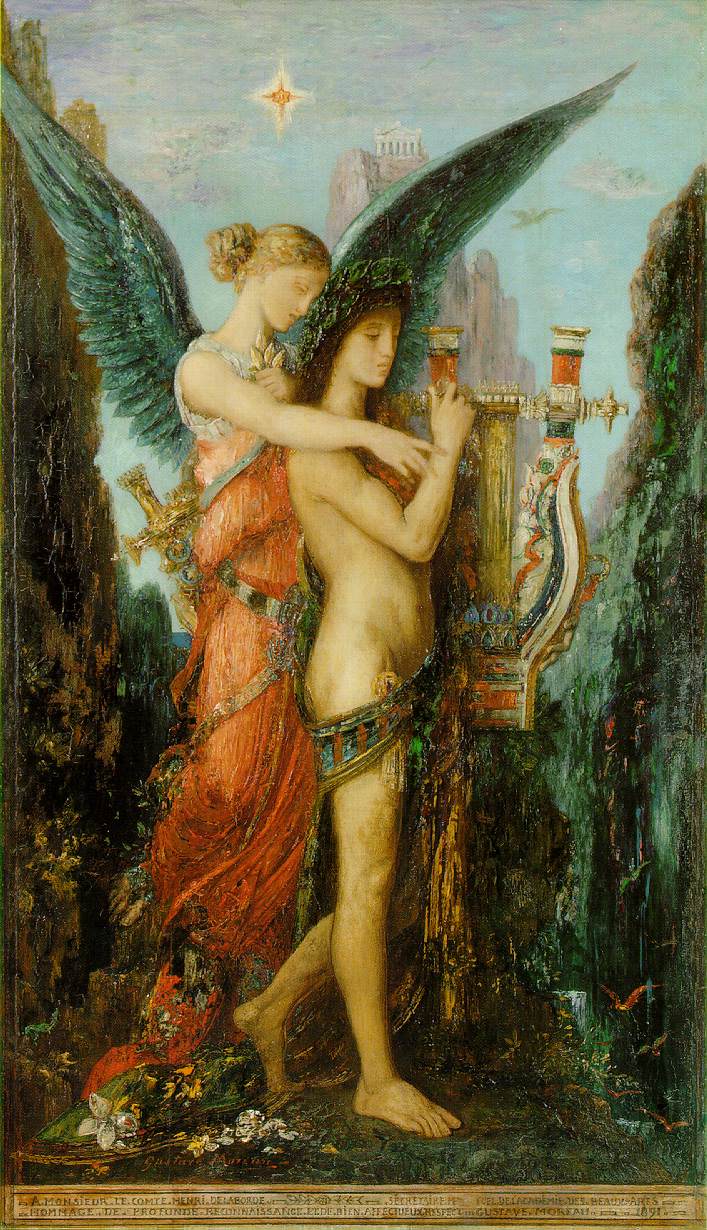“Qualquer um que prejudica os outros, faz mal a si”
οἷ τ αὐτῷ κακὰ τεύχει ἀνὴρ ἄλλῳ κακὰ τεύχων·
Έργα και ημέραι (Trabalhos e Dias), 265
Hesíodo foi um poeta oral grego da Antiguidade, geralmente tido como tendo estado em atividade entre 750 e 650 a.C.. Sua poesia é a primeira feita na Europa na qual o poeta vê a si mesmo como um tópico, um indivíduo com um papel distinto a desempenhar. Autores antigos creditavam a ele e a Homero a instituição dos costumes religiosos gregos, e os acadêmicos modernos referem-se a ele como uma das principais fontes para a religião grega, as técnicas agriculturais, o pensamento econômico , a astronomia grega arcaica e o estudo do tempo.
Hesíodo utilizou diversos estilos do verso tradicional, incluindo a poesia gnômica, hínica, genealógica e narrativa, porém não foi capaz de dominar todas com a mesma fluência; as comparações com Homero costumam lhe ser desfavoráveis. Nas palavra de um estudioso moderno de sua obra, "é como se um artesão, com seus dedos grandes e desajeitados, estivesse imitando, paciente e fascinadamente, a costura delicada de um alfaiate profissional."
Wikipedia

“Qualquer um que prejudica os outros, faz mal a si”
οἷ τ αὐτῷ κακὰ τεύχει ἀνὴρ ἄλλῳ κακὰ τεύχων·
Έργα και ημέραι (Trabalhos e Dias), 265
“Observe due measure, for right timing is in all things the most important factor.”
Fonte: Works and Days (c. 700 BC), line 694.
“It is not possible to deceive or go beyond the will of Zeus.”
Fonte: The Theogony (c. 700 BC), line 613.
“He harms himself who does harm to another, and the evil plan is most harmful to the planner.”
οἷ γ᾽ αὐτῷ κακὰ τεύχει ἀνὴρ ἄλλῳ κακὰ τεύχων
ἡ δὲ κακὴ βουλὴ τῷ βουλεύσαντι κακίστη.
The man who does evil to another does evil to himself, and the evil counsel is most evil for him who counsels it.
He for himself weaves woe who weaves for others woe,
and evil counsel recoils on the counsellor. https://archive.org/stream/b24865898#page/432/mode/2up
Fonte: Works and Days (c. 700 BC), lines 265-266
“Sometimes a day is a step mother, sometimes a mother.”
Fonte: Works and Days (c. 700 BC), line 825.
“Work is no disgrace: it is idleness which is a disgrace.”
Fonte: Works and Days (c. 700 BC), line 311.
“The dawn speeds a man on his journey, and speeds him too in his work.”
Fonte: Works and Days (c. 700 BC), line 579.
“Invite the man that loves thee to a feast, but let alone thine enemy.”
Fonte: Works and Days (c. 700 BC), line 342.
“Wealth should not be seized: god-given wealth is much better.”
Fonte: Works and Days (c. 700 BC), line 320.
This quote has been attributed to Hesiod on the internet, and even published with citation as a dubious attribution, but there are no known occurrences of it in his writings.
Misattributed
“For a man wins nothing better than a good wife, and, again, nothing worse than a bad one.”
Fonte: Works and Days (c. 700 BC), line 702.
Fonte: The Theogony (c. 700 BC), line 603.
“For trust and mistrust, alike ruin men.”
Fonte: Works and Days (c. 700 BC), line 372.
“The gods have placed sweat as the price of all things.”
Perhaps a mistranslation of line 289 of Works and Days, actually:
: But in front of excellence the immortal gods have put sweat
Misattributed
“Fools, they do not even know how much more is the half than the whole.”
Fonte: Works and Days (c. 700 BC), line 40; often translated as "The half is greater than the whole."
“Diligence increaseth the fruit of toil. A dilatory man wrestles with losses.”
Fonte: Works and Days (c. 700 BC), line 412.
“Do not seek evil gains; evil gains are the equivalent of disaster.”
Gain not base gains; base gains are the same as losses.
Fonte: Works and Days (c. 700 BC), line 352; compare: "the gains of the wicked bring trouble", Book of Proverbs 15:6.
We know to tell many fictions like to truths, and we know, when we will, to speak what is true.
We know how to tell many lies that pass for truth, and we know, when we wish, to tell the truth itself.
Fonte: The Theogony (c. 700 BC), lines 27–28. Variant translations:
“On the tongue of such an one they shed a honeyed dew, and from his lips drop gentle words.”
Fonte: The Theogony (c. 700 BC), line 82.